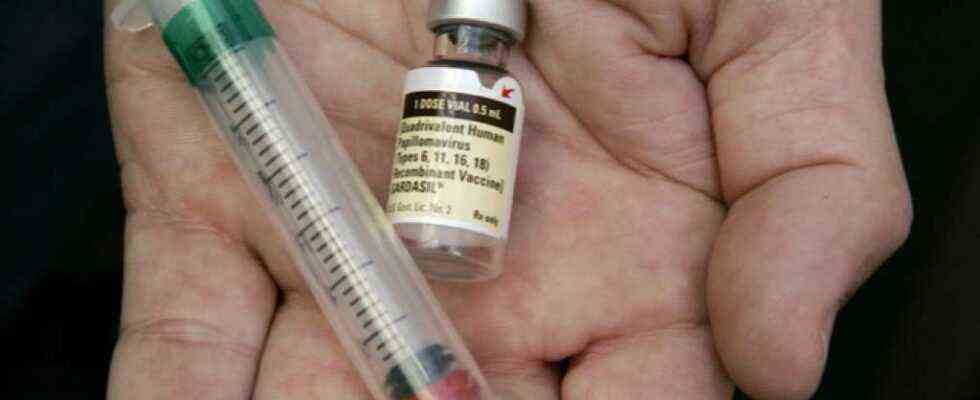According to a UK study, the introduction of human papillomavirus (HPV) vaccination has led to a significant decrease in cervical cancer.
the essentials in brief
- The HPV vaccination has reduced the incidence of cervical cancer in England.
- The decline particularly affected young women who were vaccinated early.
The introduction of vaccination against human papillomavirus (HPV) has led to a decrease in cervical cancer in England, according to a study. Authors speak of the first direct evidence for this effect of immunization.
A comparison of the number of cases of cervical cancer before and after the start of the UK HPV vaccination program in 2008 showed a “substantial reduction”. This is what it says in the study published on Thursday in the journal “The Lancet”. The decline particularly affected young women who received the vaccination early.
Study must continue
«Our study provides the first direct evidence of the effect the HPV vaccination (…) the occurrence of cancer»Wrote the study authors. In the twelve-year-old women who already received the Cervarix vaccine, the cervical cancer cases decreased by 87 percent. In women who received their vaccination between the ages of 16 and 18, the study found the decline was 34 percent.
However, the study authors admitted that their study was of limited informative value. They only targeted women up to 25 years of age. In this age group, cervical cancer rarely occurs even without HPV vaccination. The study must therefore be continued in the coming years, the scientists wrote.
Poor countries cannot afford vaccinations
Cervical cancer is one of the most common types of cancer in women, killing hundreds of thousands of women worldwide each year. In almost all cases this will be cancer caused by the pathogen HPV, which is transmitted through sexual intercourse. HPV vaccines have been around since the mid-2000s. If possible, the vaccination should be given before the first sexual intercourse.
Last year the World Health Organization (WHO) presented a global strategy to fight cervical cancer. The authors of the “Lancet” study emphasize that, for various reasons, there is still insufficient vaccination against HPV. Poorer countries could not afford the vaccinations. An additional challenge lies in the fact that the vaccine has to be continuously cooled.
England failed to meet WHO target
“Even in a wealthy country like England with access to HPV immunization, that was not the case target set by WHO achieved.” This is what gynecologists Maggie Cruickshank and Mihaela Grigore wrote. The intended result includes that 90 percent of 15 year old girls are vaccinated. In addition, according to the study authors, the corona-Pandemic an expansion of HPV vaccinations.
In Germany, the Standing Vaccination Commission (Stiko) recommends a first HPV vaccination between the ages of nine and 14 years. In 2018, this vaccination recommendation for girls was expanded to include boys.
More on the subject:

